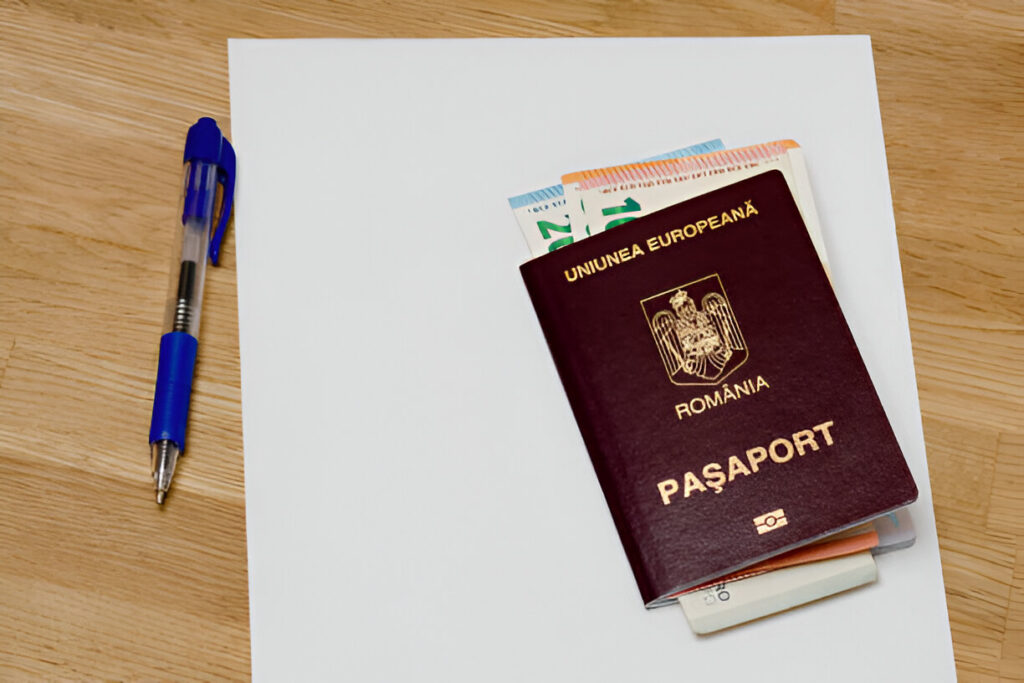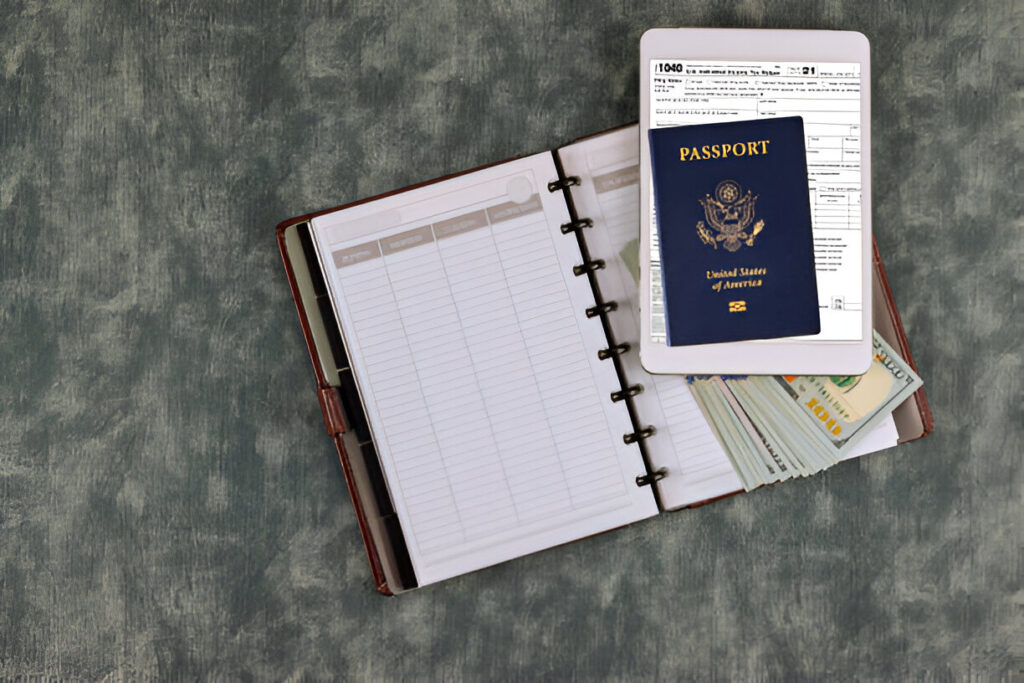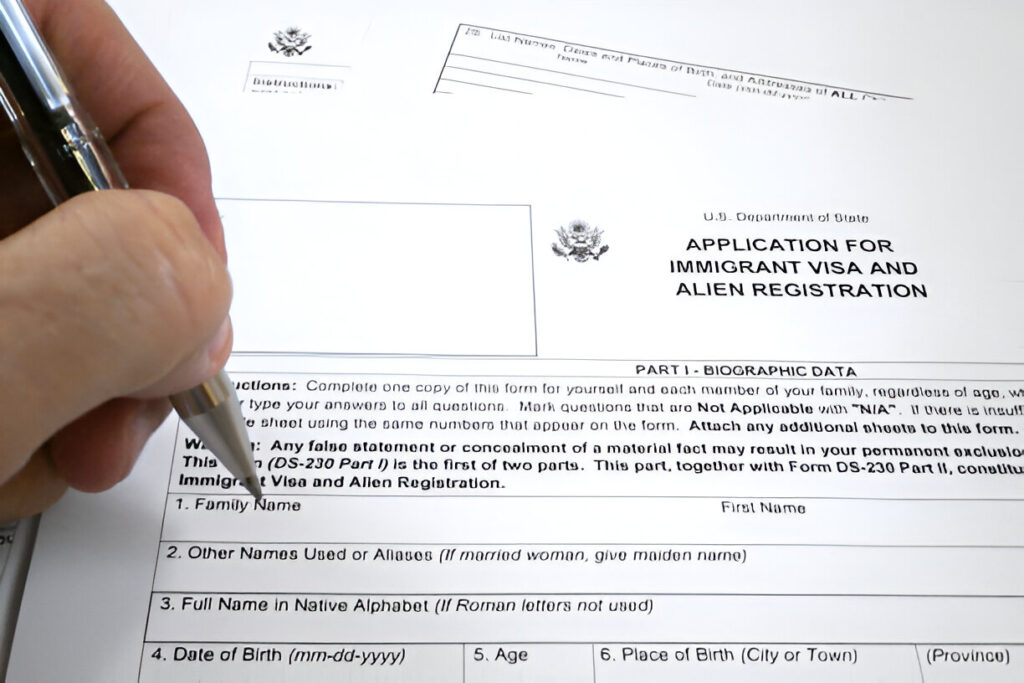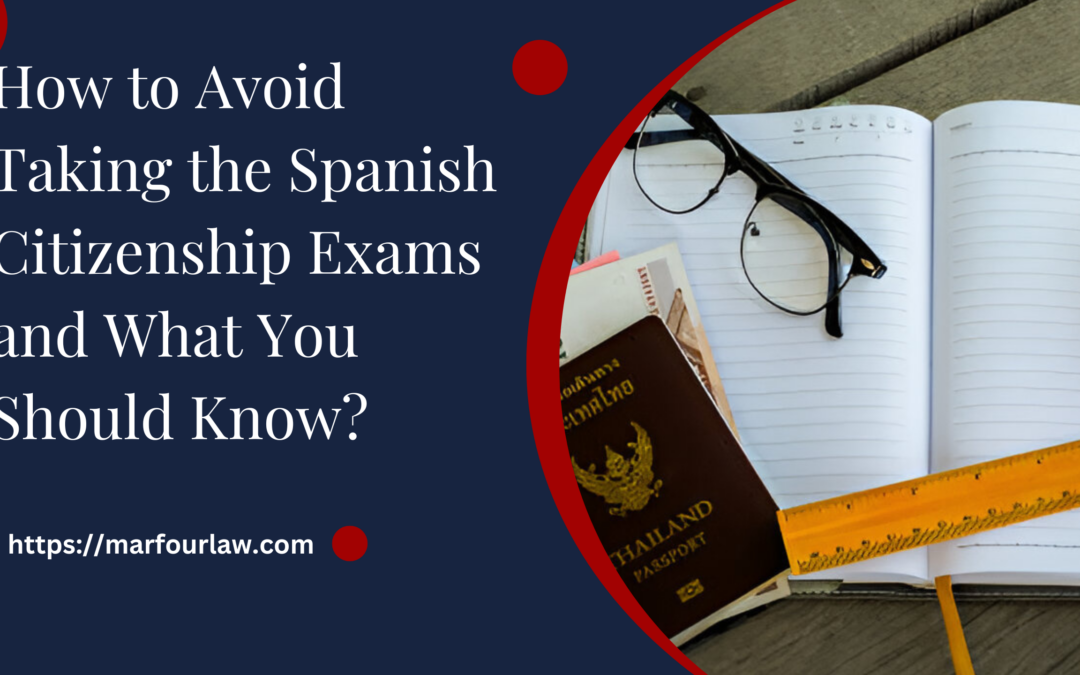Avoid taking the Spanish citizenship exams? It might seem like a dream if the idea of memorizing complex questions or brushing up on your Spanish feels overwhelming. However, if you’re aiming to gain Spanish citizenship, knowing whether you need to take these tests—and what they involve—can make a big difference. From the structure of the test to the specific exemptions available, understanding the ins and outs of this process is crucial. So, let’s dive deep into whether you can avoid the exam, and what to expect if you can’t.
Is It an Option to Avoid Taking the Spanish Citizenship Exams?
When thinking about applying for Spanish citizenship, many people are eager to know if they can skip the citizenship test altogether. While most applicants must complete the exam, there are specific exemptions based on factors like age, disability, and long-term residency. Let’s dive into those.
Age-Based Exemptions
Applicants over the age of 70 are generally exempt from taking the Spanish citizenship exam. This is a huge relief for seniors who may find the idea of preparing for and taking a formal test overwhelming. If you’re in this age group, you can still pursue citizenship without needing to prove your knowledge of Spain’s history, government, and language through a written test. Ensure you provide proper documentation to show that you meet the age requirement.
Exemptions for Disabilities
If you have a documented disability that affects your ability to study or take the exam, you may be exempt. These disabilities often include conditions that impair cognitive functions or make it difficult to complete formal testing. To claim this exemption, you will need to present certified medical documents proving your condition. Planning ahead and submitting your exemption request with the required paperwork is essential to ensure a smooth application process.
Exemptions for Long-Term Residents
Some individuals who have lived in Spain for a long time might be able to skip the test, especially if they have integrated into Spanish society through work, education, or community involvement. Although these cases are rare, it’s worth exploring if you’ve been a resident for an extended period. Consulting with an immigration lawyer or expert on this matter is smart, as the requirements can be complex.
Other Possible Exemptions
There are also potential exemptions for political refugees or individuals from specific countries. For example, citizens of certain Latin American countries may benefit from a more straightforward path to Spanish citizenship without needing to pass the exam. This is another situation where seeking professional advice is beneficial, as these rules can vary and may be subject to change.
What to Expect If You Do Need to Take the Test?
Knowing what to expect can help ease your nerves and ensure you’re fully prepared if you are required to take the Spanish citizenship exam. The exam is divided into several categories, testing your knowledge of Spain’s political system, culture, geography, and language.

Spanish Government and Political Structure
A significant portion of the exam focuses on Spain’s political structure. This includes questions on the country’s monarchy, the parliamentary system, and the roles of various branches of government. You may also be asked about Spain’s Constitution, how laws are made, and who holds the key offices in the government. It’s essential to familiarize yourself with Spain’s government setup to succeed in this part of the test.
Spanish Society and Traditions
Another focus of the exam is on Spain’s rich culture and traditions. Questions will cover everything from national holidays like “Día de la Hispanidad” to traditional festivals such as “La Tomatina” or “Las Fallas.” You should also know about social norms, such as the importance of family and how Spaniards typically greet one another. Demonstrating your awareness of these customs will help prove that you’re ready to integrate into Spanish society.
Historical Events and Geography
Spain has a long and complex history, and a portion of the citizenship test will assess your knowledge of it. You’ll be asked about key historical figures, such as King Ferdinand and Queen Isabella, and significant events like the Spanish Civil War. Understanding the country’s geography is equally important. Expect questions about the major regions, cities like Madrid and Barcelona, and natural landmarks such as the Pyrenees Mountains.
Language Proficiency
In addition to cultural and historical knowledge, you will need to demonstrate a certain level of Spanish proficiency. The language portion of the exam is typically designed to ensure that you can navigate basic conversations and understand written and spoken Spanish. Achieving at least an A2 level on the Common European Framework of Reference for Languages (CEFR) scale is necessary to pass this part of the test.
Spanish Language Requirements for the Exam
Let’s talk more about the Spanish language requirement. Achieving the A2 level on the CEFR scale means that you should be able to understand simple sentences, express basic needs, and hold straightforward conversations. You don’t need to be fluent, but you do need to demonstrate a functional grasp of the language. Here’s how you can meet this requirement:
How to Achieve A2 Level Proficiency?
If your Spanish is a bit rusty or you’re just starting to learn the language, don’t worry. There are plenty of resources to help you prepare. Consider enrolling in Spanish classes at a local community center or taking an online course for people preparing for the citizenship exam. Immersing yourself in the language by listening to Spanish music, watching Spanish films, or speaking with native speakers can also boost your skills. Practice makes perfect, so take the time to focus on the basics of grammar, vocabulary, and sentence structure.
Preparing for the Exam | Tips and Resources
Proper preparation is crucial for passing the Spanish citizenship exam. Here are some strategies and resources that can help you feel confident and ready on test day:

Utilize Study Guides and Practice Questions
The Spanish government, through the Instituto Cervantes, offers official study guides and practice questions. These materials cover the exam’s topics, including Spain’s history, government, and cultural norms. By reviewing these guides and completing practice questions, you’ll get a feel for the types of questions appearing on the test.
Join a Language Class
Given that language proficiency is such a vital part of the exam, enrolling in a Spanish language class can be incredibly beneficial. Many courses are designed specifically for people preparing for citizenship, focusing on everyday language skills and key cultural knowledge. Whether you choose an in-person or online course, structured learning will help improve your language skills and confidence.
Practice with Native Speakers
One of the best ways to improve your Spanish is to practice speaking with native speakers. If you have friends or acquaintances who are fluent in Spanish, ask them to help you practice conversational Spanish. You can also join language exchange groups or find a tutor to work with you on specific areas where you need improvement. Practicing real-life conversations will sharpen your skills and make you more comfortable with the language.
What Happens If You Fail the Citizenship Exam?
It’s natural to feel anxious about the possibility of failing the Spanish citizenship test. However, failing the exam is not the end of the road. Let’s take a look at what happens if you don’t pass and how you can bounce back:
Retake the Exam
The good news is that there is no limit on how many times you can retake the citizenship test. If you fail the first time, you can study the material again and try the test as many times as needed. While it’s always preferable to pass on your first attempt, knowing that you can retake the exam should help reduce some of the pressure.
How to Improve Before Retaking the Test?
If you didn’t pass, take the time to identify the areas where you struggled. Was it the language portion? Or maybe the questions on Spanish history? Once you know where you need improvement, focus your study efforts on those areas. Consider working with a tutor or joining a study group to ensure you’re better prepared for your next attempt.
Application Delays
Although failing the exam doesn’t mean your citizenship application is denied, it will likely delay the process. You’ll need to wait for the next test date and pass before your application can move forward. This makes thorough preparation even more important so you can avoid delays and keep your application on track.
Applying for Spanish Citizenship Without Taking the Exam
Now, let’s discuss the scenarios where you might be able to bypass the exam altogether. While the majority of applicants must take the test, there are some alternative paths to citizenship that do not require passing the exam.

Citizenship Through Descent
If you have Spanish ancestry, you may be eligible for citizenship by descent. This option applies to individuals who can prove that their parents or grandparents were Spanish citizens. Typically, citizenship by descent has fewer requirements, and you may not need to take the exam. However, the documentation process can be complex, so working with an immigration lawyer is often advisable.
Citizenship Through Marriage
If you are married to a Spanish citizen, the citizenship process may be simplified for you. While some applicants still need to take the exam, others may have a shorter path to citizenship, especially if they’ve been married and living in Spain for an extended period. Each case is different, so check with the Spanish authorities or a legal expert to see what specific rules apply to your situation.
Permanent Residency Alternatives
If you’ve lived in Spain for many years but don’t meet the requirements for citizenship, you might be eligible for permanent residency instead. Permanent residency allows you to live and work in Spain indefinitely without needing to pass the citizenship test. While it doesn’t offer the full benefits of citizenship, it’s a great option for those who want to stay in Spain long-term without taking the exam. If you need help related to this contact our expert lawyers on marfour international law firm.
FAQs
Do all applicants need to take the Spanish citizenship test?
Not all applicants are required to take the Spanish citizenship test. Exemptions exist for individuals over the age of 70, those with certain disabilities, and long-term residents who have integrated into Spanish society. Specific cases, such as political refugees or citizens from certain countries, may also qualify for exemptions. Consulting with an immigration expert or Spanish consulate can clarify whether you fall into one of these exempt categories.
How difficult is the Spanish citizenship test?
The difficulty of the Spanish citizenship test largely depends on your preparation. With adequate study, the test is manageable. It covers Spain’s language, culture, and government, requiring you to have a basic understanding of these areas. If you prepare thoroughly using study materials and practice tests, you’ll improve your chances of success.
What is the minimum language requirement for the test?
To pass the language component of the Spanish citizenship test, you need to demonstrate an A2 level of proficiency in Spanish. This means you should be able to understand and use basic Spanish phrases and sentences, communicate about everyday topics, and comprehend simple written material.
Can you retake the citizenship test if you fail?
Yes, you can retake the Spanish citizenship test if you don’t pass on your first attempt. There is no limit to the number of times you can take the test, so you can continue to improve your knowledge and skills before trying again. Each attempt offers an opportunity to better prepare and increase your chances of passing.
Are there exemptions for seniors?
Yes, applicants who are 70 years of age or older are typically exempt from taking the Spanish citizenship test. This exemption acknowledges that learning and test-taking might be more challenging for older individuals. If you are in this age group, you can proceed with your citizenship application without the exam.
What happens if you fail the Spanish citizenship test?
Failing the citizenship test does not automatically disqualify you from obtaining Spanish citizenship. You can retake the test as many times as needed. While failing may delay your application process, it provides an opportunity to improve your knowledge and skills before your next attempt. Focus on studying and practicing to increase your chances of success on subsequent tries.
Conclusion
For many applicants, the Spanish citizenship exam is a necessary step on the path to becoming a citizen. However, depending on your age, personal circumstances, or ancestry, you may be able to bypass the test altogether. If you do need to take the exam, thorough preparation and a good understanding of Spain’s language, culture, and history will help ensure your success. By following the right strategies and using available resources, you can approach the exam with confidence and move closer to your goal of Spanish citizenship.

